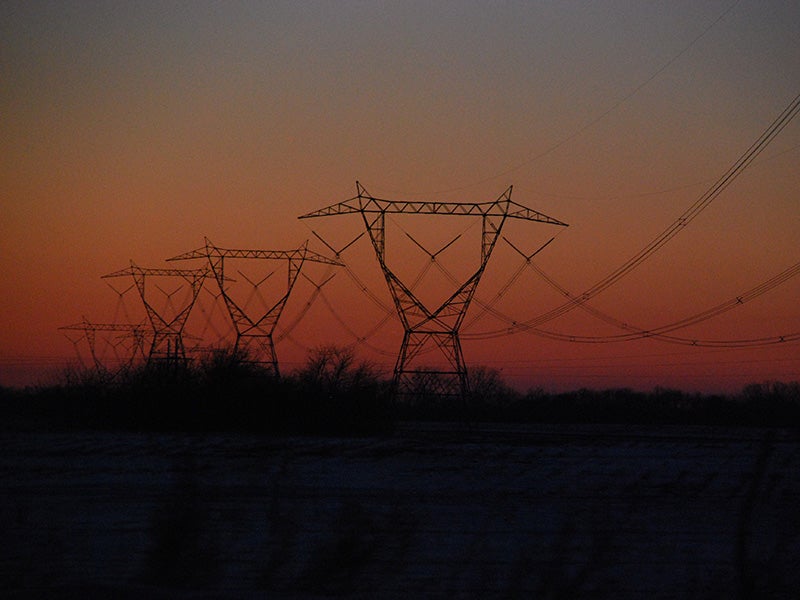FERC Rejects Proposal to Fast Track Connection of New Methane Gas Plants
Victory
—The proposal illegally discriminated against competitive power generation that would bring clean, affordable energy online
Contacts
Kathryn McGrath, kmcgrath@earthjustice.org
The Federal Energy Regulatory Commission (FERC) issued a decision rejecting a plan to fast-track connection of methane gas plants to the Midwest power grid. The proposal by Midcontinent Independent System Operator (MISO) is known as the Expedited Resource Addition Study (ERAS).
The typical wait for new energy projects to connect to the MISO grid has recently been several years. ERAS would have offered a 90-day timeline, but the flawed policy favored incumbent utilities over independent power producers. The proposal threatened to further delay MISO’s standard interconnection process, where low-cost clean energy makes up the majority of projects in the queue. Clean Wisconsin, Natural Resources Defense Council, Sierra Club, Sustainable FERC Project, Union of Concerned Scientists and Earthjustice filed comments on the flawed proposal detailing how:
- The ERAS process would have sidelined generation projects that have been waiting years to connect, and sent everyday consumers the bill for fast tracking projects hand-picked by special interests.
- The proposed ERAS process illegally discriminates against competitive power generation that would bring online clean, affordable energy, allowing utilities to favor their own projects at the expense of consumers and state clean energy goals.
- ERAS threatened the very reforms to the interconnection process that FERC finalized in Order No. 2023 after years of back and forth with stakeholders. Picking and choosing winners and backsliding to inefficient serial interconnection studies is the opposite of progress.
Statement from Greg Wannier, Senior Attorney with the Sierra Club:
“It’s good to see FERC taking a deep look at extreme proposals like MISO’s here. Interconnection fast-track proposals like ERAS are fundamentally discriminatory, and the Commission made clear that discriminatory tools should only be used to address the most severe emergencies. MISO failed to demonstrate such an emergency here, and its policy was not well tailored to meet one. We look forward to engaging further in the stakeholder process as MISO works to address the serious concerns raised by Commissioners and stakeholders and come back with a targeted solution.”
Statement from Ciaran Gallagher, Energy & Air Manager with Clean Wisconsin:
“We applaud FERC’s instructions to MISO that an expedited interconnection process must have enforceable standards that prove resource inadequacy needs. Such guidelines would limit fast-tracking more fossil plants, saving Wisconsin residents’ pocketbooks and public health.”
Christine Powell, Deputy Managing Attorney for Earthjustice’s Clean Energy program:
“FERC rightly rejected the proposal from MISO to fast track connection of utility-owned methane gas projects over the queue of clean energy projects that have been waiting years to connect to the grid. FERC’s role as an independent agency is to protect consumers, and ensure reliable affordable energy. The best way to do that is let clean energy compete fairly and openly.”
Statement from Ada Statler, Senior Associate Attorney with Earthjustice:
“The Commission’s rejection of ERAS as a false solution to MISO’s interconnection backlog demonstrates the importance of FERC’s independence and expertise. The decision honors the Commission’s longstanding practice to allow all generation resources open access to the power grid, which means that low-cost clean energy can bring down costs for consumers. In addition to protecting consumers, the Commission’s decision protects its recent reforms to the interconnection process from delays that would be caused by utilities picking and choosing to their own projects to cut the line.”

Additional Resources
About Earthjustice
Earthjustice is the premier nonprofit environmental law organization. We wield the power of law and the strength of partnership to protect people's health, to preserve magnificent places and wildlife, to advance clean energy, and to combat climate change. We are here because the earth needs a good lawyer.